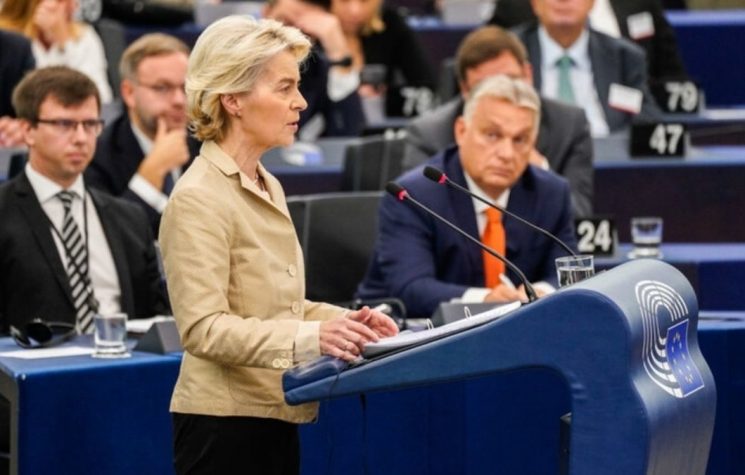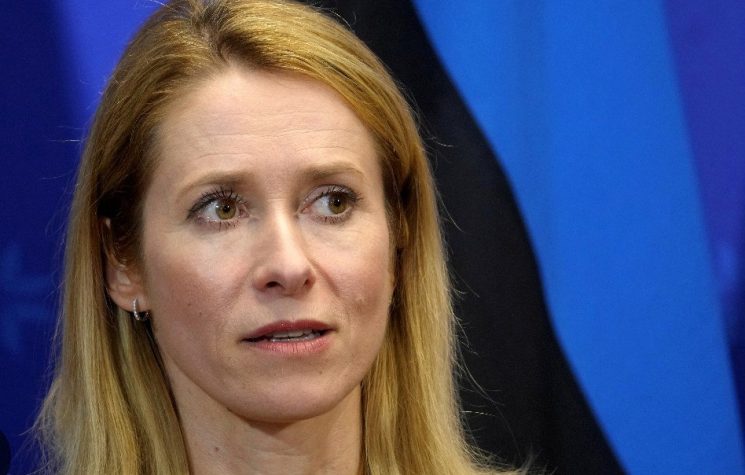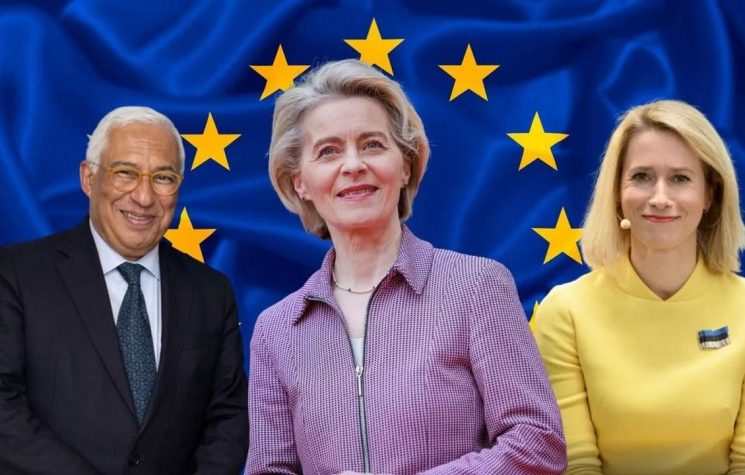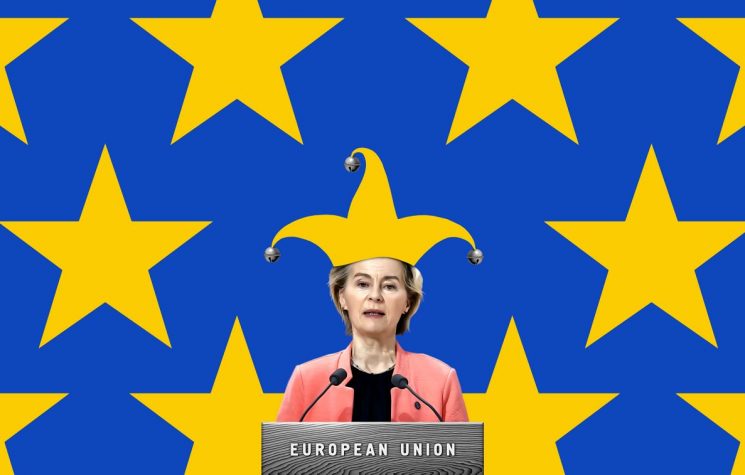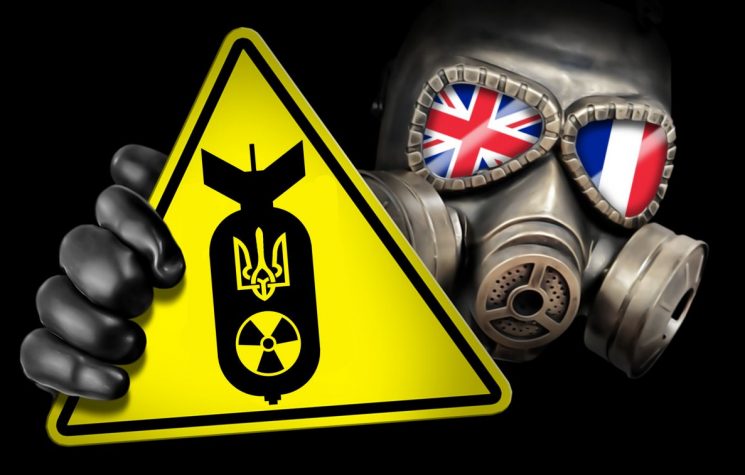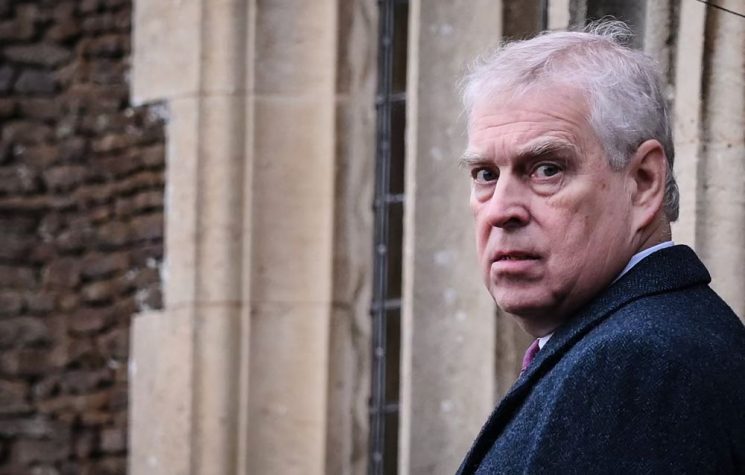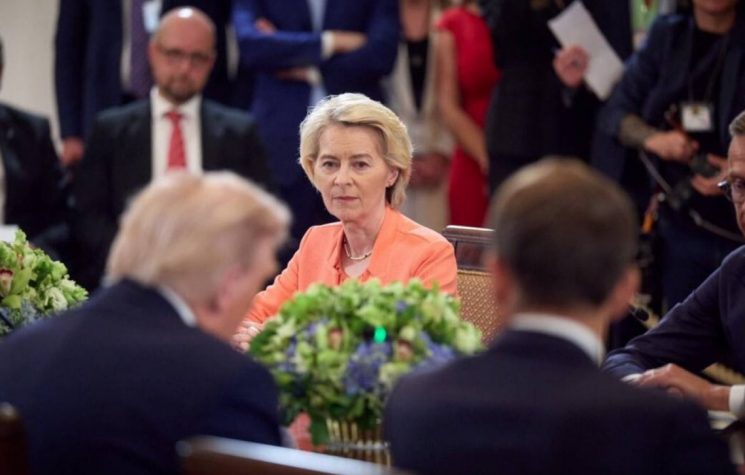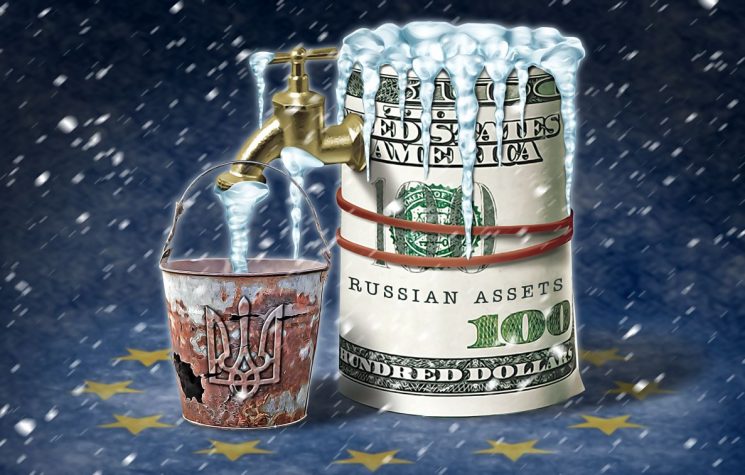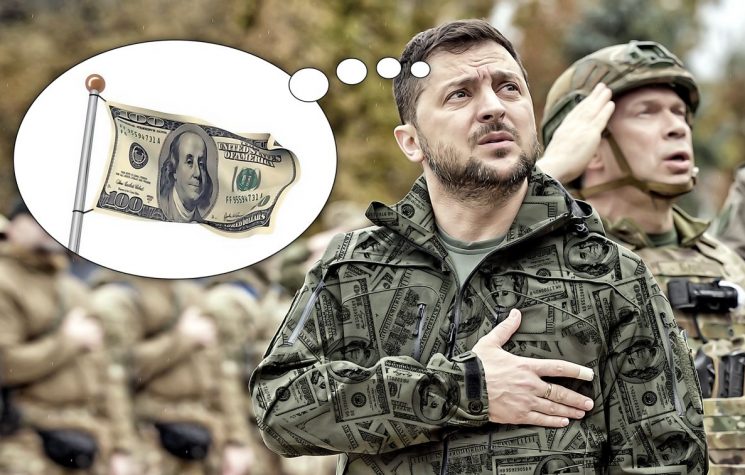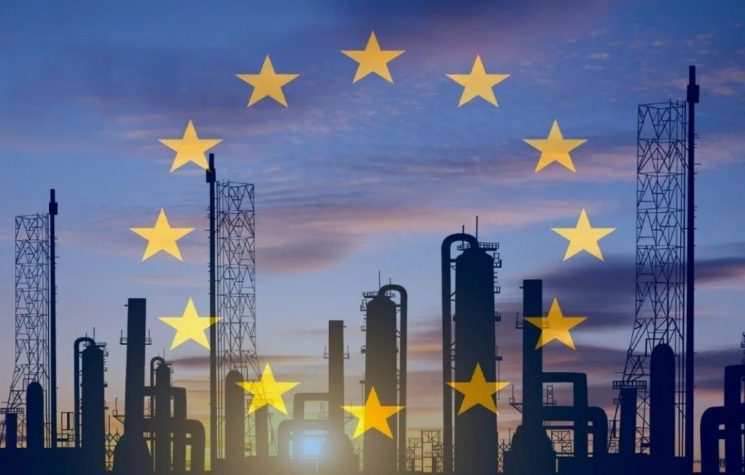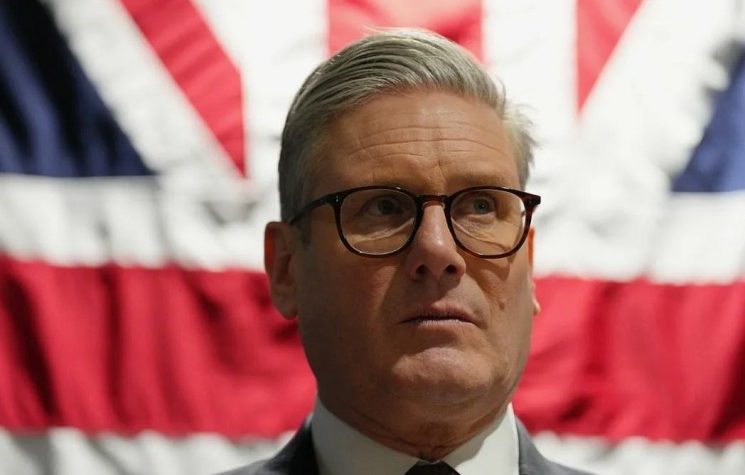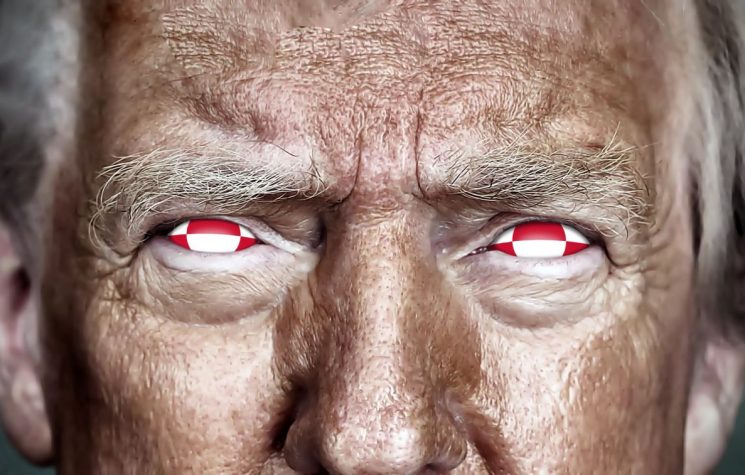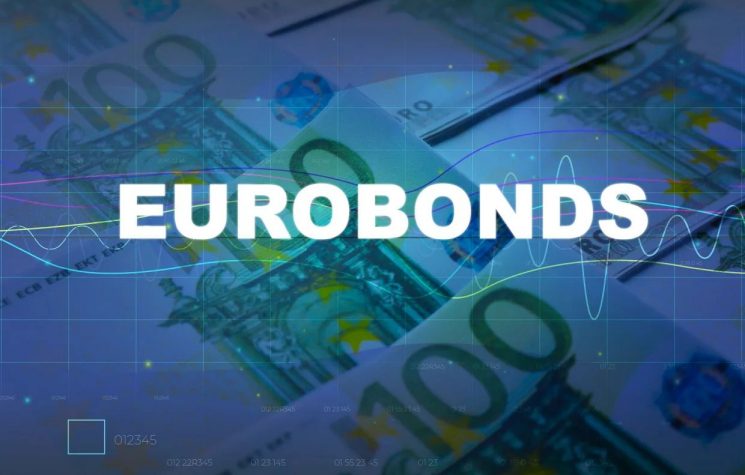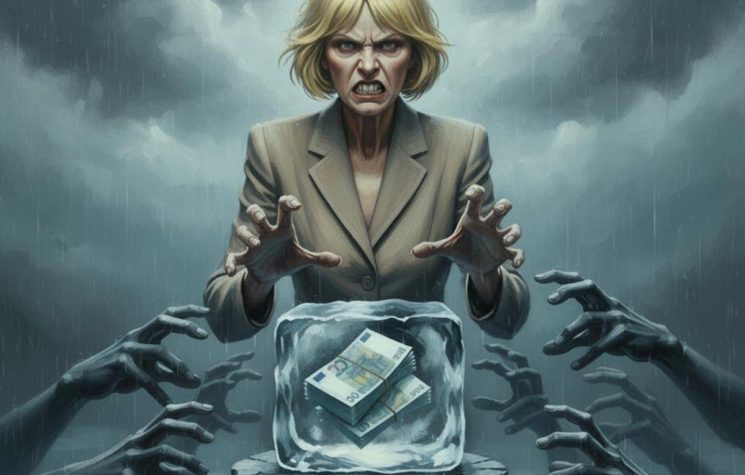The Commission president is so soaked in corruption excrement that she proudly stands tall as the biggest sewer rat in the entire cesspool of EU graft.
Join us on Telegram![]() , Twitter
, Twitter![]() , and VK
, and VK![]() .
.
Contact us: info@strategic-culture.su
The recent attempt by MEPs in the European Parliament to force the European Commission President Ursula von der Leyen to resign is interesting on a number of levels, but chiefly because it’s unprecedented and it shows that when the EU is pushed into a corner, with a gun against its temple, it will reluctantly resort to a democratic process finally to retain its position. Generally speaking, the European Parliament and its members are not considered big players in the Brussels trilogy of power standing beside the two other institutions, the European Commission and the European Council of Ministers. In fact, the assembly is in many ways a fake parliament where its members only get to rubber stamp important pieces of draft legislation those two other bodies want signed off. It was actually a last-minute idea by the architects of the EU who realized that when building on the French model of executive administrative power, they had forgotten to add a component to legitimize the whole circus with some sort of democratic endorsement.
And yet, on occasion, the MEPs do wield power. One point in their 5-year term is when they cross examine EU commissioners who have been nominated by member states for the top Brussels jobs – which they, the MEPs can reject. Another moment can be when they become rattled by the ‘big brother’ European Commission down the road and they need to remind it that it is ultimately the parliament itself who gets to choose European Commission presidents and, if needed, they can reject them at any point.
Just recently MEPs took the unprecedented step to try and oust von der Leyen as many feel as though she has threatened the entire EU project with her corrupt practices and her dictatorial élan. In an official statement from the MEPs who were championing for her to stand down, they state that “the Commission led by President Ursula von der Leyen no longer commands the confidence of Parliament to uphold the principles of transparency, accountability, and good governance essential to a democratic Union.” They also demanded the Commission “to resign due to repeated failures to ensure transparency and to its persistent disregard for democratic oversight and the rule of law within the Union.”
The move, which was obviously not going to get a majority vote, largely came from right-wing MEPs who, ironically, secured their seats at the last EU election due to a growing anger and distrust of the EU by voters who want more power and national sovereignty returned to their own countries.
And yet it showed that von der Leyen’s style, which some could compare to infamous Soviet leaders, has its limits. She represents the worst aspects of the EU, what can happen when the Commission takes too much power and makes too grand decisions, like, for example, using funds earmarked for development for Ukraine’s war. There are actually a number of issues which MEPs are angry about which brought the no confidence vote. Perhaps it started in the previous administration when von der Leyen spent 38 billion dollars on a Pfizer vaccine for Covid when her relationship with the U.S. pharma giant stank – her husband’s firm, which is owned by Pfizer, received EU funding and her refusal to hand over text messages to EU investigators gives a clue to how she thinks. More recently she is suspected of having a hand in the dirty business of election rigging in Romania which was probably the last straw for many of these MEPs.
Some argue that history repeats itself and that in 1999 twenty European Commissioners resigned en masse due to corruption allegations hanging over them. But there are stark differences worth noting. Back then, all it took was an internal auditors report which pointed out one French Commissioner’s hand in the till who gave EU contracts to her own dentist while other Commissioners gave top jobs to their friends who were woefully inexperienced with what they were tasked with. In 1999, you could argue the EU was still clinging onto some democratic values as there was a certain amount of honour about the project, so falling on its own sword seemed only right, when Jacques Santer whimpered at a press conference “I’m sorry…”. He held his head down low and some of us in the auditorium thought perhaps he would cry.
But today’s EU has bloated into a real Soviet-style powerhouse which brazenly shows its colours to the world about what it is: a project of power transfer from member states’ democratic basis to Brussels where it all preposterous ideas of democracy and accountability are left on the platform of Brussels Midi station when Eurocrats arrive to begin their “work”. Von der Leyen is the accumulation of a steady power grab of decades of such thinking which salami sliced power away from national governments without anyone really noticing. Who cares about her mishandling a 650bn Euros corona fund?
For those who control her, she’s doing a splendid job and it is hardly surprising that the America’s greatest propaganda newsletter Politico even called her “America’s own EU President”.
MEPs are largely unloved, unsexed, grey people in grey suits who are so useless that their own political parties back home gave them the EU position so as to stay out of the real deal, while paying them off for loyalty. Glenys Kinnock country. Most have never had a real job in the private sector and are so stupid that it beggars belief that they should play an important part in the EU’s internal process. The truth is that the poor little things don’t. However, this move by a small group of rebel MEPs shouldn’t be compared to what happened in 1999. The present day European Commission has done a stellar job from the Soviet handbook of destroying all whistleblowers and putting the fear of God into any of the fake internal audit or policing departments which are supposed to investigate and prosecute crooks like Ursula. The vote is a desperate measure by some MEPs following years of these crony EU organizations merely ruffling papers and grunting acerbic comments to journalists – the EU’s own ombudsman, its own internal audit outfit and lastly – don’t laugh – its own internal anti-fraud outfit called OLAF, sometimes pronounced “Oh laugh”.
When Neil Kinnock was given the job of European Commission vice president after the 1999 Commission resigned (which was also part of) his main task was to protect the institution and its top brass from any real scrutiny or accountability, roll out new rules which make it impossible for Commission officials to become whistleblowers and to make OLAF completely ineffective at routing out internal corruption or embezzlement. Far from the MEP vote of no confidence following a “precedent” of previous attempts to hold the sleazy commission chiefs to account, it is more that it is a symbolic sign of desperation of what years of Kinnock-style “reforms” can produce in the form of a Commission president who is so soaked in corruption excrement that she proudly stands tall as the biggest sewer rat in the entire cesspool of EU graft.










